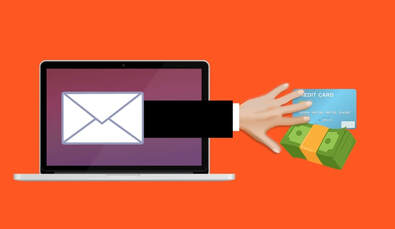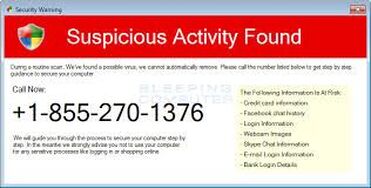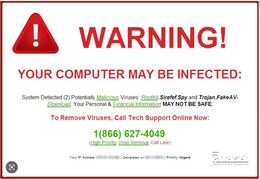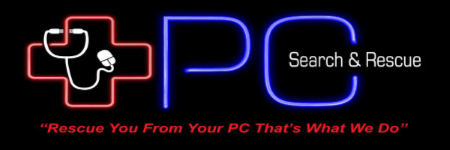|
In today's digital age, computers have become essential to our lives. However, buying a brand-new computer can be costly and may not always be the most sustainable choice. This article will explore why considering a professionally refurbished computer is a money-saving investment and an environmentally sound option.
Cost Savings of Refurbished Computers: Affordable Pricing: Refurbished computers are significantly cheaper than their brand-new counterparts. By purchasing a refurbished computer, you can save substantial money without compromising performance or quality. Comparable Performance: Refurbished computers undergo a rigorous process of testing, repairing, and upgrading to ensure they perform like new. These computers often feature the latest software and hardware upgrades, providing a reliable and high-performing machine at a fraction of the cost. Warranty and Support: Reputable sellers of refurbished computers offer warranties and customer support, just like when buying a new computer. This means you can enjoy peace of mind knowing you have reliable after-sales assistance if any issues arise. Environmental Benefits of Refurbished Computers: Reduction of E-Waste: Electronic waste, or e-waste, is a growing concern worldwide. By opting for a refurbished computer, you actively contribute to reducing e-waste. Refurbished computers are essentially recycled electronics, giving them a second life and preventing them from ending up in landfills. Energy and Resource Conservation: The manufacturing process of new computers requires significant energy and resources. By purchasing a refurbished computer, you help conserve these valuable resources and reduce the carbon footprint associated with manufacturing new electronics. Extending Product Lifespan: Choosing a refurbished computer extends the lifespan of an electronic device, reducing the need for frequent upgrades and replacements. By keeping electronic devices in use for longer, we minimize the environmental impact associated with the disposal and production of new devices. How to Choose a Reliable Refurbished Computer: Research and Verification: Research the seller and verify their credibility before purchasing. Look for reviews, ratings, and certifications to ensure they have a reliable track record of refurbishing computers. Seller Reputation and Certification: Choose sellers recognized and certified by reputable organizations. Certifications like Microsoft Authorized Refurbisher (MAR) or similar endorsements guarantee that the refurbishing process meets high standards. Warranty and Return Policy: Ensure the seller offers a warranty period for the refurbished computer. A reliable seller will stand behind the quality of their products and provide a return policy if you encounter any issues. In Conclusion: Purchasing a professionally refurbished computer offers a win-win situation. Not only can you save money, but you can also contribute to preserving our environment. By reducing e-waste, conserving energy and resources, and extending the lifespan of electronic devices, you play an active role in creating a more sustainable future. So, the next time you need a computer, consider a professionally refurbished one; it's a smart investment for your wallet and the planet.
0 Comments
Introduction:
In today's digital age, computer viruses, and malware pose a significant threat to our personal and professional lives. These malicious programs can cause data loss, compromise sensitive information, and disrupt the normal functioning of our computers. However, implementing proactive measures and following good practices can significantly reduce the risk of falling victim to viruses and malware. In this blog post, I will provide a comprehensive guide on preventing computer viruses and malware, empowering you to protect your valuable data and maintain your computer's security. Install and Update Antivirus Software: Reliable antivirus software is one of the first lines of defense against viruses and malware. Ensure you have a reputable antivirus program installed on your computer and keep it current. Regularly check for updates to ensure your antivirus software has the latest virus definitions and security patches to effectively detect and eliminate new threats. Enable Automatic Operating System Updates: Operating system updates often include crucial security patches that address vulnerabilities exploited by viruses and malware. Enable automatic updates for your operating system to ensure you receive these important updates promptly. This practice will help keep your computer protected against the latest threats. Exercise Caution When Clicking Links and Opening Attachments: Be vigilant when browsing the internet or opening emails. Avoid clicking on suspicious links or opening attachments from unknown sources. Phishing emails and malicious websites are common for viruses and malware to infiltrate your computer. Verify the sender's credibility and be cautious even with seemingly legitimate emails or websites. Be Wary of Freeware and Third-Party Downloads: When downloading software or files from the internet, exercise caution, especially when it involves freeware or third-party sources. Always scan downloaded files with your antivirus software before opening or executing them. Stick to reputable websites and official software vendors to minimize the risk of downloading infected files. Use Strong and Unique Passwords: Passwords are your first line of defense against unauthorized access. Create strong, unique passwords for all your online accounts and avoid using the same password across multiple platforms. Consider using a reliable password manager to store and manage your passwords securely. Enable Two-Factor Authentication: Two-factor authentication adds an extra layer of security by requiring a second form of verification, such as a unique code sent to your mobile device and your password. Enable Two-Factor whenever possible, especially for sensitive accounts like email, banking, and social media. Regularly Backup Your Data: Data backup is crucial in the event of a virus or malware attack. Regularly back up your important files to an external hard drive, cloud storage, or secure location. This practice ensures that even if your computer gets infected, you can recover your data without paying ransom or losing valuable information. Educate Yourself and Stay Informed: Stay updated on the latest trends in computer security and educate yourself on common attack vectors and techniques employed by cybercriminals. By staying informed, you can recognize potential threats and take appropriate precautions to prevent them. Keep Your Firewall Enabled: Firewalls are a barrier between your computer and the internet, monitoring and blocking potentially malicious network traffic. Ensure that your firewall is enabled to provide additional protection against unauthorized access and suspicious activity. Windows will automatically apply basic Firewall settings for you. But it is a good idea to check the settings occasionally. Regularly Scan for Malware: Perform regular malware scans using your antivirus software to detect and remove potential threats that may have slipped through your defenses. Set up scheduled scans to ensure continuous protection. Many paid versions of today's Antivirus software will and should always be running in the background of your computer. Meaning it is always running and scanning for viruses and malware. In Conclusion: Preventing computer viruses and malware requires a proactive approach and adherence to best practices. Following the tips outlined in this guide can significantly reduce the risk of falling victim to these digital threats. Remember, maintaining a secure computer environment is an ongoing effort that requires continuous vigilance and staying abreast of the evolving landscape of viruses and malware. You can protect your computer and valuable data from potential harm by implementing strong security measures, staying informed, and utilizing reliable antivirus software. Remember, prevention is always better than cure for computer viruses and malware. Implementing these preventive measures will save you from a security breach's potential headaches, data loss, and financial consequences. Stay vigilant, prioritize cybersecurity, and enjoy a safe and secure computing experience. If you have any questions or concerns regarding computer viruses, malware prevention, or computer security in general, don't hesitate to contact PC SAR Computer Services. We will assist you and guide you to keep your computer and personal information safe. Protect your computer, protect your data, and protect your peace of mind. Stay safe in the digital world! Malwarebytes My recommendation: For a quality Antivirus / Malware software is Malwarebytes. Many computer technicians, including myself, use this program on their computers. 1. Effectiveness: Malwarebytes is known for its strong ability to detect and remove malware, viruses, Trojans, ransomware, and other harmful software that can compromise your computer's security and steal your data. 2. Real-time protection: Malwarebytes provides real-time protection that can detect and block threats in real time, which can help prevent infections from happening in the first place. 4. User-friendly interface: Malwarebytes is known for its user-friendly interface that makes it easy to navigate and operate. It doesn't require a lot of technical know-how or expertise to use effectively. 5. Frequent updates: Malwarebytes is updated frequently to ensure it stays up-to-date with the latest threats and vulnerabilities. This can help keep your computer protected against emerging threats. Overall, Malwarebytes can be an effective tool to help safeguard your computer and personal information against cyberattacks and other online threats. "You can have multiple antivirus or malware programs installed on your computer." But you can only have one turned on at a time. "And here is why."
Running only one antivirus or malware program on your computer at a time is recommended to avoid conflicts and ensure optimal system performance. Here are a few reasons why: Resource Utilization: Antivirus/malware programs constantly scan files, processes, and network activity in real-time to detect and prevent malicious activities. Running multiple antivirus/malware programs simultaneously will consume a considerable amount of your system resources, such as CPU and memory, resulting in decreased performance and system slowdowns. Conflicting Detection: Antivirus/malware programs use their algorithms and databases to detect and quarantine threats. When multiple antivirus/malware programs are active, they may see each other's files or processes as potential threats, leading to false positives and unnecessary quarantining of legitimate files. Incompatibility: Different antivirus/malware programs may have conflicting settings or functionalities that can cause compatibility issues when running simultaneously. For example, they may try to access duplicate files or system resources simultaneously, resulting in errors or system instability. Updates and Maintenance: Antivirus/malware programs require regular updates to keep their virus/malware databases up-to-date and effectively detect new threats. Running multiple antivirus/malware programs can make it difficult to manage updates and maintenance, resulting in incomplete or outdated protection. Ease of Troubleshooting: If you encounter any issues related to antivirus/malware software, it can be challenging to identify the root cause when multiple programs are running. Troubleshooting becomes more straightforward when only one antivirus/malware program is installed, making pinpointing and resolving issues easier. In conclusion, to ensure efficient and effective protection against viruses and malware, running only one antivirus or malware program on your computer at a time is recommended, along with keeping it updated and properly maintained. In conclusion, to ensure efficient and effective protection against viruses and malware, running only one antivirus or malware program on your computer at a time is recommended, along with keeping it updated and properly maintained. If your email has been hacked and someone has sent scam emails to your contact list, there are several steps you can take to address the situation: (You can open a suspicious-looking email and read its content (BUT NEVER CLICK ON ANY LINK IN THE EMAIL).
By taking these steps, you can help protect your email account and prevent further damage from the hack. NOTE: One thing I do to anyone I am sending an email is place the date and time as the very first line in the body of the email. Since you don't usually see this in an email, you will know it is coming from me. ONE VERY IMPORTANT THING: MICROSOFT OR WINDOWS GROUP WILL NEVER EVER CONTACT YOU. "IT'S A SCAM." IF YOU GET A POP-UP OR A PHONE CALL, DO NOT CALL THE NUMBER ON THE POP-UP AND HANG UP THE PHONE. THIS IS TWO EXAMPLE OF WHAT A FAKE SCAM POP-UP MAY LOOK LIKE. What to Do If You Get a Pop-Up
If you get a pop-up and can't do anything with your computer, the first thing you should do is stay calm and don't panic. The worst thing you can do is call the phone number on the pop-up or click on any links in the pop-up. Doing so may lead to more problems, such as downloading malware or giving away your personal information. Here's what you should do instead:
Don't fall for windows virus alert scams: protect yourself from cybercriminals Are you tired of receiving constant pop-ups on your computer warning you of a supposed virus? Or have you received a phone call from someone claiming to be from Microsoft, stating that your computer is infected with a virus? These scenarios may seem alarming, but they are most likely scams designed to deceive you into providing personal and financial information to cybercriminals. 1: how the windows virus alert scam works The windows virus alert scam typically involves a pop-up window that appears on your computer, often while browsing the internet. The pop-up will claim that your computer is infected with a virus and urge you to call a phone number or click a link to resolve the issue. If you do so, you may be directed to a fake tech support website or connected to a scammer who will attempt to gain access to your computer and steal your information. 2: why you should not respond to the windows virus alert It's important to remember that legitimate antivirus software will never ask you to call a phone number or click on a link in a pop-up window. Responding to these alerts can result in severe consequences, such as giving cybercriminals access to your computer and personal information. Additionally, scammers may ask for payment to "fix" the issue, which can result in financial loss. 3: how to protect yourself from windows virus alert scams Taking a few precautionary measures is essential to protect yourself from falling victim to the windows virus alert scam. First, install reputable antivirus software and keep it up-to-date. Second, be cautious when browsing the internet and avoid clicking on suspicious links or pop-up windows. Third, never provide personal or financial information to unsolicited callers or websites. In conclusion, don't fall for the windows virus alert scam. Stay vigilant and protect yourself from cybercriminals by knowing the warning signs and taking necessary precautions. Remember, if it seems too good to be true, it probably is. |
The Blog
Hi there! I'm Bob Beeman, owner of PC SAR 911 Computer, an IT repair service, and PC SAR Web Services, a web design, and (SEO) Search Engine Optimization company. |



